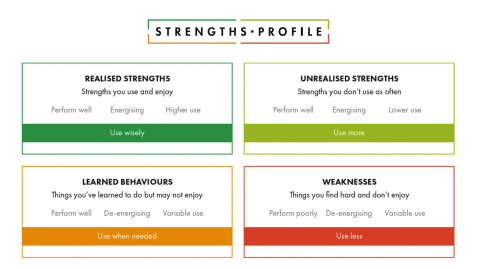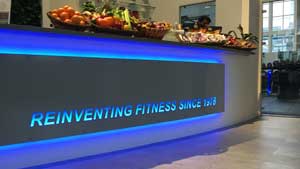
Playing to our strengths at work - using strengths profile to find the gold at work
We hear this a lot at work and on the playing field – “make sure everyone is playing to their strengths”. But the reality is that this often fails to happen. Why?
In this newsletter I’ll explore the rationale for building a strengths-based work culture and introduce one of the world’s best strengths assessment tools – strength finder.
People don't know their strengths – research suggests that 70% of us find it challenging to articulate where our strengths lie.
People don't mean it – in our appraisal catch-ups, we focus on weaknesses. We then send people on a training course to help them work on these areas – turning something they are weak in into mediocre.
People don't understand the business case for investing in strengths rather than improving people's weaknesses – a global study by the Corporate Leadership Council of nearly 20,000 people found that when people were encouraged by their managers to focus on their strengths, their performance rose by 36%. Conversely, performance dropped by 27% when they concentrated on their weaknesses.
Feedback is scary – "can I give you some feedback?" – perhaps some of the most threatening words in the English language! This view would change if we also got into the habit of giving regular feedback which praised our colleagues' strengths
It's weird to talk about things that go well at work – "Too American, so happy clappy". Research from Gallup and other organisations is clear – regular, authentic strengths-based feedback, engages teams and makes them more effective. It makes people more productive, creative, and energised. They learn faster, perform better, enjoy their roles more, have greater levels of wellbeing and bring their best selves to work.
Focusing on strengths gets us nowhere – Focusing on strengths does not mean we ignore weaknesses. On the contrary, we must understand weaknesses to invest our time in activities that energise us. Old school management directed attention to investing time in improving areas we are weak in – to bring these up to mediocre. A more effective approach is to turn our strengths into super strengths, navigate our careers away from areas we are weak in and seek support in those areas from colleagues.
My journey into strengths and how you can use them with your team
I took a masters degree in applied positive psychology in 2008 at the University of East London – a long time before it was the go-to area for leadership training. And I was fortunate to be invited by Dr Alex Linley from the Centre for Applied Positive Psychology (CAPP) to participate in a new strengths program for coaches called Realise Two.
Realise Two became, alongside the Gallup strengths finder assessment and coaching, the world's premier strengths-based workplace tool – it's now called Strengths Profile. And I continued this training with Sue Langley in Australia.
Alex Linley defines strength as:
The key to this definition is energy – does using a particular workplace strength energise you or deplete your reserves? For example, you could be a great organiser and planner but doing those things disengage you. Perhaps your true authentic strengths lie in building rapport with new clients and deepening relationships. Strength's profile is a unique strengths tool in that it helps us identify areas of work we should be dialling up and where we should be reigning in our energies.
Your strengths profiling and coaching
Strengths profiling online assessment takes about twenty minutes to complete. It provides a unique understanding of how you relate to 60 strengths, explored through three dimensions:
• Performance - how well do you do it?
• Energy - how good do you feel when doing it? How much energy do you gain?
• Use - how often do you do it? In which situations?
From this assessment, a coaching profile covers four areas:
- Realised strengths - the things you do well, regularly use at work, and give you a buzz - do more but use wisely.
- Learned behaviours - the things you are good at but leave you feeling depleted if used too often - do less of and use the support of your team.
- Weaknesses - the things you perform poorly, dislike doing and drain your energy – if possible, avoid and explore how to address this with support from the team
- Unrealised the strengths - the gold! The things you are great at love to do but don't use much in your current role.
Booking strengths coaching session for 2023
To learn more about taking the assessment or using the assessment with your team in 2023, contact me today.
Andy Roberts MAPP



